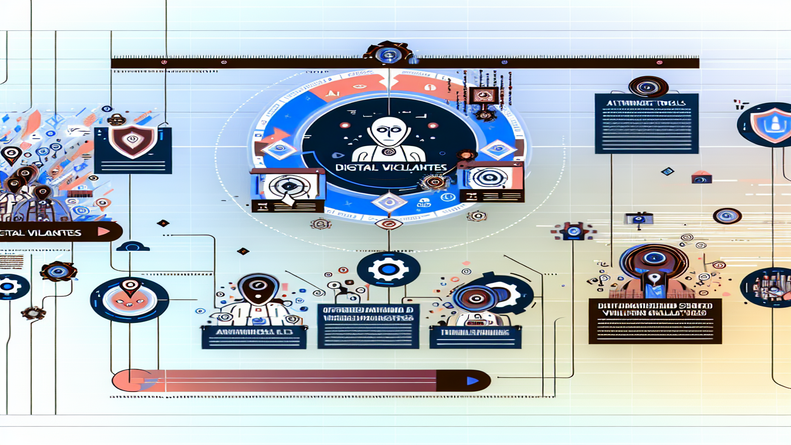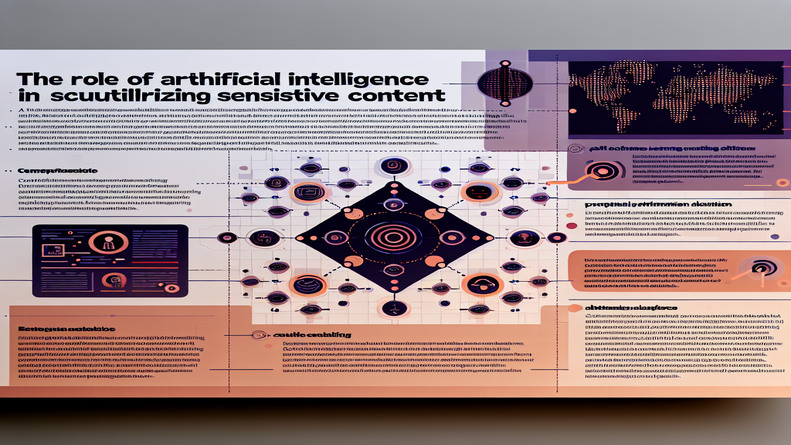![]()
In today’s digitally connected world, information flows freely and rapidly, making it ever so crucial to assess the authenticity and impact of online content. Amidst high-stake events like the Israel-Hamas conflict, tools for scrutinizing content have become indispensable for individuals and groups seeking to parse through narratives, confirm facts, or debunk misinformation. Here, we delve into the sophisticated world of digital vigilance, highlighting how these tools are being used to monitor and analyze content on hot-button issues.
🌐 Navigating the Information Maze: The Emergence of Digital Vigilantes 💡
In times of conflict, accurate information is as critical as it is vulnerable to distortion. As the Israel-Hamas war unfolded, a new brigade of digital warriors emerged. Armed with cutting-edge software and an unwavering commitment to the truth, these individuals and groups navigated the information maze, relentlessly identifying biased content, flagging hate speech, and verifying the veracity of circulating narratives.
Their toolkit is diverse, ranging from automated fact-checking algorithms to AI-powered sentiment analysis programs. As digital vigilantes, they not only exercise their agency to protect the integrity of information but also empower others by sharing methodologies and fostering greater critical engagement with content.
👁️ Bridging the Divide: Tools as Catalysts for Transparency and Accountability ✨
Transparency and accountability are pillars of integrity, especially in the chaotic echo chambers of social media. Tools designed to monitor and scrutinize content are now more than just technological advancements; they serve as bridges over the divisive currents of misinformation.
Amid the Israel-Hamas conflict, for instance, these applications played a key role in bringing unseen atrocities to light, verifying claims from both sides of the fence, and ensuring that public discourse remained rooted in truth. They allowed for a more balanced narrative to surface—one that acknowledges the complexities of war and the nuances of geo-political tensions.
📡 The Evolution of Media Monitoring: From Passive Watching to Active Engagement 🕵️
 Media monitoring has evolved from a passive activity into a dynamic engagement with content. Users have transcended the role of mere spectators to become active participants in content filtration and analysis.
Media monitoring has evolved from a passive activity into a dynamic engagement with content. Users have transcended the role of mere spectators to become active participants in content filtration and analysis.
During the Israel-Hamas war, these advancements enabled real-time scrutiny of unfolding events, providing individuals and groups with the ability to disseminate quick responses to potential propaganda or erroneous reporting. This active engagement ensures a higher degree of media literacy and prompts a collective push for content that is authentic and objective.
🤖 AI at the Forefront: Machine Learning for Enhanced Content Scrutiny 🤓
Artificial Intelligence has risen to become a vanguard in the realm of content scrutiny. Machine learning algorithms are increasingly being harnessed to detect patterns of misinformation and bias in the media coverage of events like the Israel-Hamas conflict.
By training on vast datasets, these AI tools can discern subtleties beyond human capabilities, flagging potential fake news and helping to maintain a cleaner information ecosystem. Engaging with these tools, people are now equipped to address the challenges of modern-day information warfare.
👨💻 The Power of Crowdsourcing: Collective Intellect against Misinformation 🌍
Crowdsourcing has revolutionized the way we combat misinformation. By leveraging the collective intellect of vast online communities, individuals and groups are better positioned to identify and address inaccuracies in media coverage relating to sensitive topics.
The shared responsibility evidenced in scrutinizing the Israel-Hamas conflict-related content exemplifies this power. Volunteer fact-checkers, armchair analysts, and professional journalists have come together to create a fortified front against the spread of false narratives.
🔮 Anticipating the Future: Preparing for Next-Generation Content Wars 🔗
The digital landscape is in constant flux, and the tools we use to scrutinize content must evolve accordingly. The Israel-Hamas conflict is a case study in modern information warfare, urging a proactive approach to developing more sophisticated methods of content analysis.
Anticipating the strategies of those peddling misinformation will allow individuals and organizations to stay ahead of the curve, preparing for the next generation of content wars that will assuredly take place in the digital domain.Are you ready to join the movement and redefine the scope of what’s possible within your organization? Connect with me on [LinkedIn] to explore how you can harness the power of innovative platforms and embark on a journey of unparalleled productivity and integrity. 🚀🌟
